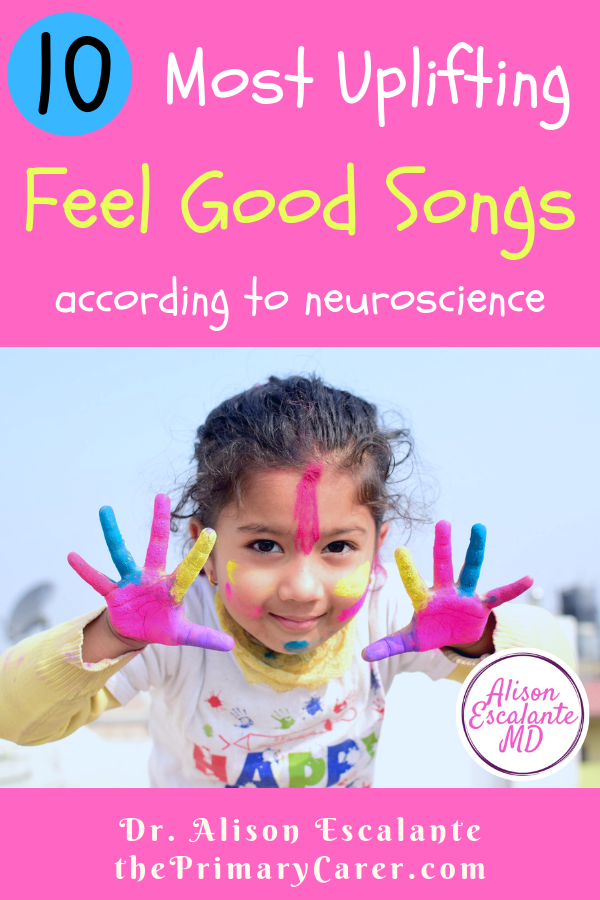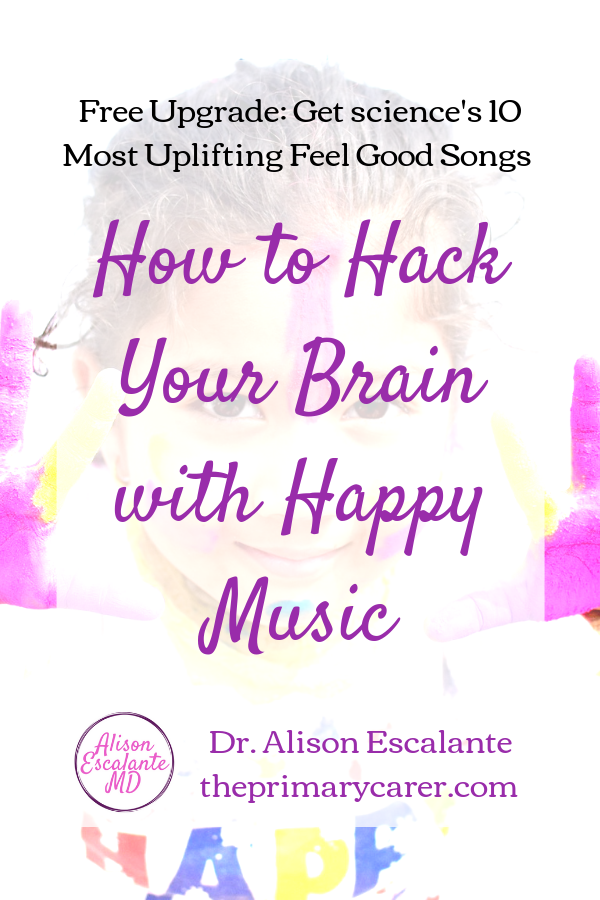Did you know you can hack your brain with the right music? If you want to be happier, you can listen to happy music. However, if you need to work through some darker feelings, music in sync with that can help.
As I’ve gone deeper into writing my book about the Parenting ShouldStorm and on how we can be effective parents AND enjoy doing it, I’ve been hanging out with neuroscientists. It turns out that Neuroscientists love trying to figure out why we do what we do, where that happens in our brains, and how to change it. And some of them are getting very interested in sound.
When I spoke with Dr. Stephen Porges about his work on the autonomic nervous system, we talked about the way music syncs up with us and changes our mood. He advises that if you want to feel better, music in the medium range of the human voice can help. This is because when we hear things like this, it sends a message to our brains that we are not in danger. Here’s a hint: Disney music.

Hacking my kids’ brains
After I learned this, I tried using this on my kids when they were grumpy. At the time, they were really mad about some frustrating homework and I could not get them to refocus. So, I tried something different and I played the Disney playlist I found online.
When my son noticed, he was not happy. “Mom, that’s annoying! I don’t want to listen to Moana!” my son complained. He got more annoyed as Maui sang the song “Your Welcome.” Of course, I pretended I didn’t hear him. After a minute and a half, my son seemed happier. I couldn’t believe it worked.
Unfortunately, using happy music to move my kids from frustration to being ready to learn doesn’t always work. Sometimes they are insistently annoyed when I try this. However, as a mom, I’ll take whatever tricks I can with my kids.
We all know that music helps, but why?
Another neuroscientist, Dr. Jacob Jolij has come up with a scientific way to define which songs make us feel good. He has written, “A ‘feel good song’ is rather tricky to define. Music appreciation is highly personal and strongly depends on social context, and personal associations… Basically, what you need are song features that you can express in numbers.”

So that’s what he did. He began studying aspects of songs like major or minor mode, tempo, genre, lyrical theme and overall emotionality of the lyrics. Over time a pattern emerged and the math became clear to him. Subsequently, he created an equation to define ‘feel good’ songs.
The feel good song formula is: Rating = 60 + (0.00165 * BPM – 120)^2 + (4.376 * Major) + 0.78 * nChords – (Major * nChords).
Isn’t that so helpful? Now I can use the equation everytime I listen to music, and I’ll know exactly how to pick the best songs when I need to lift my mood. Right? As hilarious as that mental image is, the equation is opaque to most of us. Fortunately, Dr. Jolij gave us examples and I make a playlist out of it. Click here to get the playlist with the ten most uplifting feel good songs.
If you want to know more about Should-Free parenting join us on Facebook where we have a really fun group of parents. Or explore this site for more blogs, or my blog for Psychology Today.
©Alison Escalante MD
Disclaimer: This article represents general education and does not constitute medical advice. My ideas are mine alone.



Interesting concept. I wonder if it works for pain management?
There are some interesting sound based therapies that ARE being used for pain management, but I’m don’t know if happy music specifically has been studied for this.
How you experience life boils down to the chemicals in your brain. Happiness, sadness, anger, anxiety all can be traced to what s going on inside your head. In the past decade we ve come a long way in the science of happiness and have a pretty good idea of what happy looks like in your brain these days. Rather than being in the passenger s seat of this process, science has proven, without a doubt, that you can take control of your brain and hack into your happy neurochemicals.